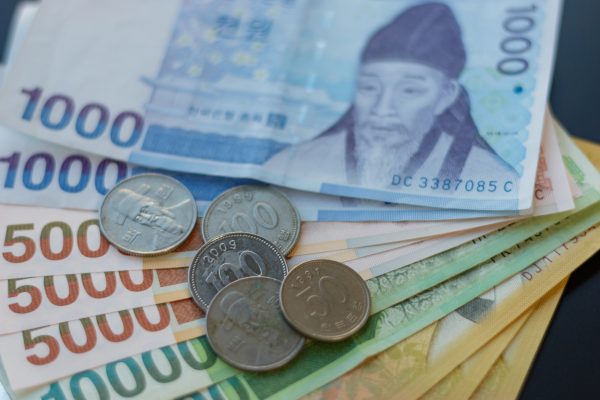On December 3, South Korean President Yoon Suk-yeol declared martial law, creating instability in domestic and international markets. Two days later, Vice Prime Minister Choe Sang-mok sought to reassure investors, stating that the economic impact of the political turmoil was minimal and that concerns about a recession were overstated.
The evaluation by South Korea’s top economic official was overly optimistic.
Throughout South Korea’s history, periods of martial law have disrupted the country’s economic conditions and financial markets. For example, after civilian dictator Rhee Syngman was exiled to Hawai’i due to his inability to maintain power through electoral fraud, the Korean economy quickly began to deteriorate. Rhee’s departure led to the imposition of martial law in 1960 and the rise of military dictator Park Chung-hee in 1961. However, Park could not immediately revive the struggling economy, which only experienced a growth rate of 2.3 percent.
As Park implemented stricter martial laws, the national economy suffered significantly, causing the GDP ranking to drop from 32nd to 40th. It took eight years for the economy to recover from this decline. Similarly, when Chun Doo-hwan, allegedly an adopted son of Park Chung-hee, seized power through a military coup in 1980, the economy unexpectedly contracted by 1.6 percent, falling 3.5 percentage points below the global GDP growth rate for that year.
Shortly after Yoon declared martial law on December 3, investors rushed to buy U.S. dollars and treasury bonds. The MSCI South Korea ETF (EWY), which tracks the South Korean stock market, fell by 6.5 percent in less than an hour. The ETF continued to experience significant losses for several hours until opposition parties voted to lift the martial law. Meanwhile, Bitcoin prices in South Korea plummeted by over 30 percent before beginning to recover. However, the situation did not resolve there.
Foreign investors became worried when they learned that the declaration of martial law was a decision made unilaterally by Yoon, without consulting his key ally, the United States. It was crucial for Yoon to notify the White House before initiating military operations, considering the mutual defense treaty between the two countries and South Korea’s close economic ties with the U.S.
Concerned investors are withdrawing from South Korea’s stock markets. Foreign investors, who previously owned over 35 percent of the Korean stock market, sold more than $1 billion in the three days following the declaration of martial law. This trend may continue until the political uncertainty is resolved, emphasizing the urgent need to expedite Yoon’s impeachment process.
If the South Korean government does not regain the confidence of foreign investors, including pension funds and retail investors, it could cause significant losses in international mutual funds and ETFs, popular retirement account investment options.
Before the completion of President Park Geun-hye’s impeachment in 2016, the stock market experienced a decline. However, the successful impeachment later resulted in improved financial and economic conditions. The Park impeachment case could serve as an example of how investors might react to the potential impeachment of Yoon Suk-yeol, which opposition parties are currently attempting to expedite.
Nevertheless, the financial and economic conditions in December 2024 are worse than in 2016, when Park Geun-hye was forced from office.
South Korea is currently grappling with significant economic challenges both domestically and globally. Yoon has enacted corporate tax cuts and has borrowed a substantial amount from the central bank and foreign reserves to cover the government deficit. Additionally, the recent relaxation of regulations on real estate lending has left the central bank with limited options to address the economic downturn. Compounding the situation, the country’s primary driver of economic growth, the semiconductor industry, is struggling.
The global economic context is also bleak. The U.S. job market is beginning to cool down, with government deficits and debt reaching unprecedented levels. China faces deflation and an economic slowdown, while the European economy is sluggish. Furthermore, two major wars are ongoing in Europe and the Middle East.
Yoon’s imposition of martial law coincided with a challenging period for U.S. investors. Typically, in December, U.S. investors participate in tax-loss harvesting by selling stocks or other assets that have decreased in value to offset capital gains taxes. Consequently, even without the surrounding political turmoil, tax-sensitive investors would have likely sold Korean stocks due to their poor performance relative to other major stock markets in 2024.
Currently, Korean and U.S. investors are facing ongoing volatility and risks. Institutional fund managers are expected to take a cautious approach and reduce their exposure to Korean financial assets until conditions improve. This cautiousness is likely to hinder the growth of the Korean economy. As a result, companies will encounter higher cost of capital, forcing them to cut back on the capital expenditures necessary for future growth. This reduced growth potential will lead to lower valuations in the Korean stock markets and exacerbate the “Korea Discount.”
If the political uncertainty surrounding the impeachment process is not addressed promptly, South Korea will likely face serious economic setbacks and financial difficulties. Several factors contribute to this outlook: Yoon and his ruling party have lost credibility with key allies; Yoon’s unpredictable behavior presents challenges for the Trump 2.0 administration; the current domestic and international economic conditions differ significantly from those during the previous impeachment; and the timing of the royal coup was poorly chosen.
If there is any good news, it’s that South Korea’s economy has always been resilient and tends to rebound once political uncertainty dissipates.





















Discussion about this post